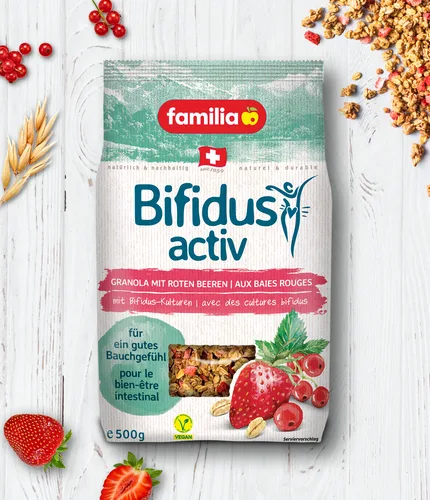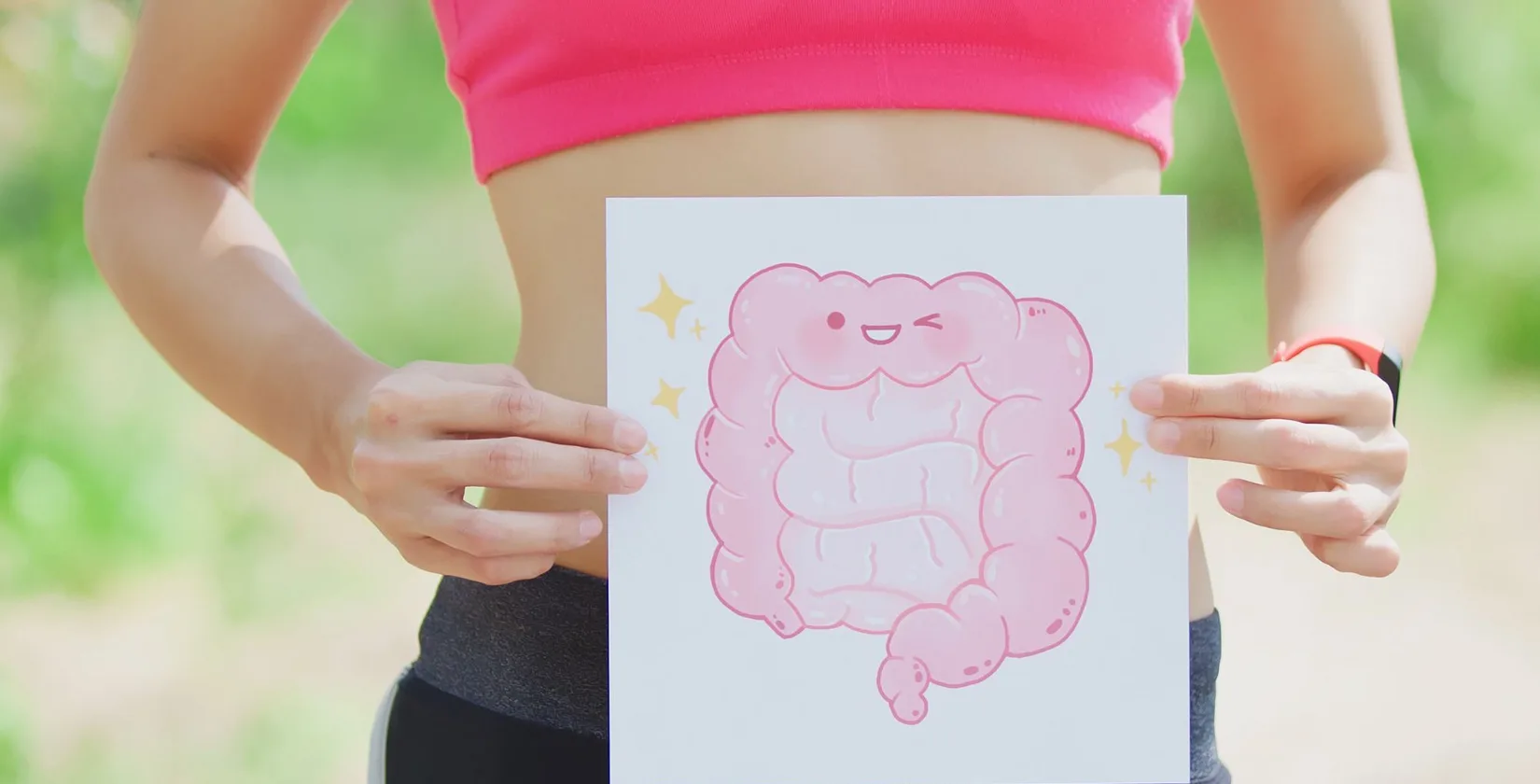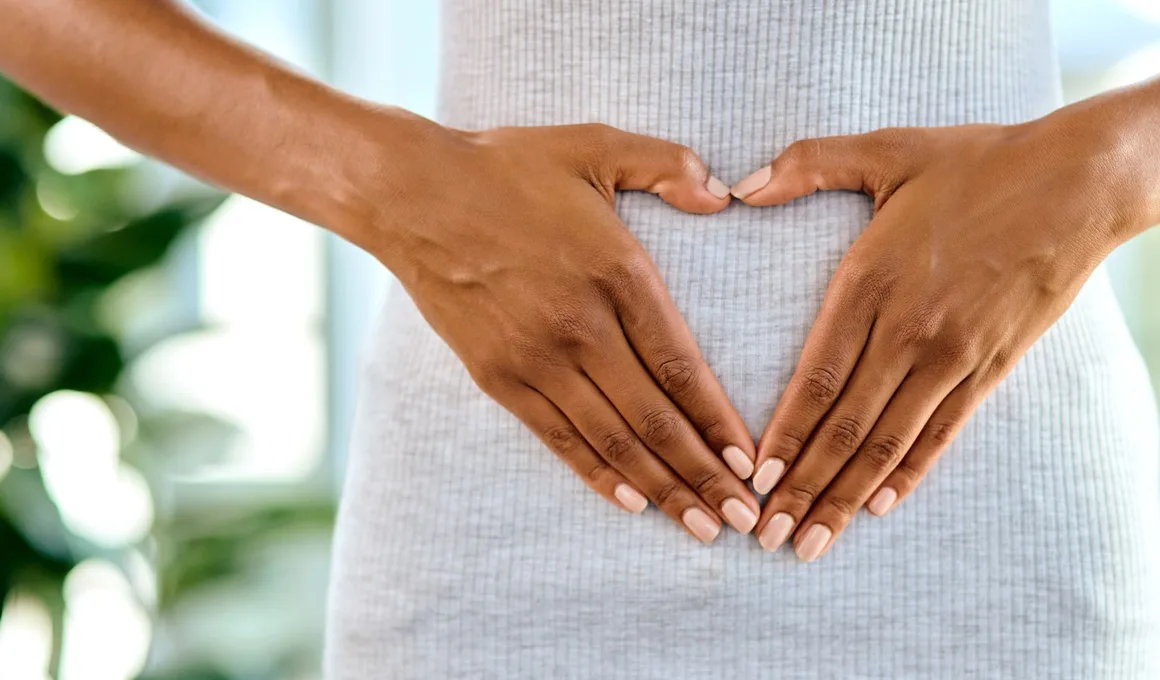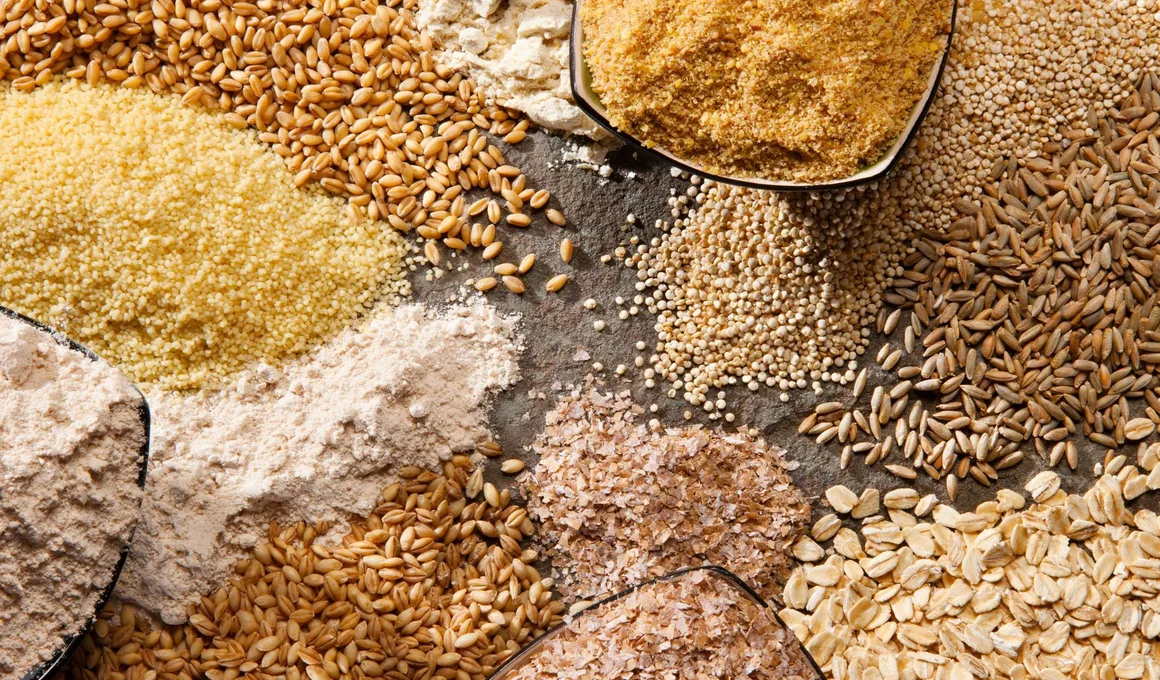
familia Bifidus activ Granola with red berries 500g

What role does our gut play in our overall well-being? And what do Bifidus cultures have to do with it? To answer these questions, we first need to take a detour into the world of the gut – probably the most underestimated organ.
In doing so, we address the following questions:
The gut is a 5.4-meter-long tube with a diameter of 3-5 cm. Its inner surface consists of folds, villi, and so-called microvilli, causing a massive enlargement of the gut surface and ensuring highly efficient nutrient absorption. However, our gut is not only responsible for proper nutrient absorption and the regulation of hunger and satiety – it is also actively involved in the regulation of metabolism, the immune system, as well as the nervous system and hormones. We will explain how this works in the next section.
The gut microbiota, colloquially known as the gut flora, encompasses all bacteria, fungi, and viruses living in the intestines. Various bacterial families are present in the gut, such as the genera Bifidobacterium, Bacteroides, Clostridium, Escherichia, and more. Depending on the composition of the gut microbiota, different metabolic products and immune cells are produced, exerting a direct impact on our physical and mental health. The production of more anti-inflammatory or pro-inflammatory substances has either positive or negative health consequences. In a healthy gut microbiota, there is, simplistically put, an ideal balance between health-promoting and harmful bacteria, with the diversity of bacteria also playing a role. A large variety of different bacteria is associated with a healthy microbiota. Imbalance in the microbiota, termed dysbiosis in scientific literature, occurs when pro-inflammatory or ‘bad’ bacteria dominate, sending various pro-inflammatory signals via the gut-brain axis to the brain and other parts of the body. This can result in an overall feeling of discomfort. It is now known that the microbiota plays a key role in mood, cognition, pain, and the regulation of body weight. How can we positively influence our microbiota and thereby achieve greater physical and mental well-being?
Taking care of our gut involves exerting a positive influence on the bacteria residing within it, known as the microbiota. The development of the microbiota begins very early, during birth. A natural birth combined with subsequent breastfeeding is the perfect start in life, promoting the diversity of the microbiota, especially health-promoting bacterial genera like Bifidobacteria and Lactobacilli. However, even if the start in life is different, a healthy gut microbiota is still achievable. Much can be influenced through a healthy diet and sufficient physical activity. In a healthy or microbiota-friendly diet, two substances play a key role: the so-called prebiotics and probiotics.

Prebiotics are non-digestible substances and belong to dietary fibers that the microbiota uses as an energy source or ‘food.’ The resulting anti-inflammatory substances have a positive effect on our health. Prebiotics are abundant in vegetables, fruits, and whole grains. Examples of prebiotics used in our muesli include inulin and oligofructose. Currently, the recommended daily intake of dietary fibers is 25-35 grams, but the ideal amount is likely higher, around 50 grams. Probiotics are living microorganisms, such as Bifidobacteria and Lactobacilli, that exert a positive effect on our health. Good sources of probiotics include foods like yogurt, kefir, or sauerkraut. Such mostly fermented foods not only contain probiotics but also other health-promoting substances.
To incorporate gut-friendly substances like prebiotics in sufficient amounts, the Mediterranean diet is highly suitable. Alongside ample dietary fibers from vegetables, fruits, and whole grains, the diet is characterized by its anti-inflammatory secondary plant compounds (such as polyphenols) and high-quality fats (olive oil, fish, nuts, seeds).

Regular consumption of fermented foods or foods containing health-promoting bacterial cultures.
Physical activity promotes microbiota diversity – the more frequent and intense the activity, the greater the impact on diversity. Don't forget about relaxation after exercise (see the last point)!
Excessive sweets contribute to dysbiosis or the growth of health-damaging gut bacteria.

Certain additives like artificial sweeteners and emulsifiers also contribute to dysbiosis or the growth of health-damaging gut bacteria.
If not absolutely necessary, avoid the use of antibiotics. In certain illnesses, antibiotic therapy is, however, essential and life-saving.
Stress management, adequate relaxation and sleep play a crucial role in maintaining a gut-friendly lifestyle. Consider mindfulness practices or other activities that promote mental well-being.
For those who have paid close attention, it's noticeable that our Bifidus activ Granola supports your good gut feel. With its high dietary fiber content and active Bifidus cultures, it contributes to the first two aspects already. ;-) Learn more about the product here.